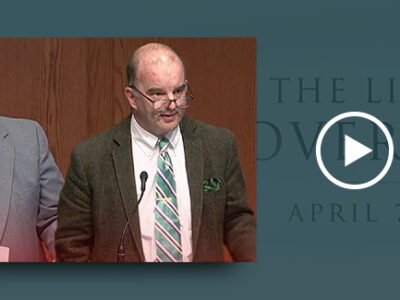Opening the hearings on Monday on the nomination of Judge John Roberts to the Supreme Court, Senator Chuck Schumer (D-NY) claimed that four years ago he was in the minority to emphasize the critical importance of judicial ideology. This topic was not widely debated 10 years ago, but was a matter of concern for at least one member of the younger population.
At the age of 14, I wrote Congressman Rodney Frelinghuysen (R-NJ) about the dangers of judicial activism—judges using power intended for the legislative branch—and won a letter-writing contest, sending me to Washington. The trip caught the attention of Bill O’Reilly and I ended up on The Factor. Ordinarily blustery, O’Reilly encouraged this shy junior high school student to make sure I continued making my voice heard to those elected officials who would one day represent my vote.
Those same concerns have brought me back to Washington to study and learn how I can continue to make a difference and shape future policy in this country.
Today the atmosphere is pulsing with the questions of judicial temperament. Today’s judges have conflicting views regarding their job description, and just Wednesday a Federal Court Justice felt it his job to outlaw recitation of the pledge of allegiance in local public schools in Sacramento county.
I am no authority on the various ways to ump the judicial baseball game, but after hours of viewing C-Span and personally sitting in on the hearings, I do have a couple of suggestions for select Senators on the Senate Judiciary Committee:
Senator Kohl should sit in on a civics class. I almost laughed out loud at Senator Kohl’s apparent perspective on a Supreme Court Justice’s job: pressed to explain his reaction to racial inequalities in the Katrina aftermath, Judge Roberts had to explain that, were he confirmed, he could not be expected to search out injustice, or legislate to correct inequality.
Senator Feinstein should get to know her constituency if she is going to speak for them. I am 22. I did not march for women’s suffrage. But unlike Senator Feinstein suggests, her experience cannot speak for ALL “American Woman.” In efforts to not “belabor her point” she took herself too seriously and even missed a classic lawyer joke. And when Sen. Feinstein is “really” interested in listening, she would find that there are intelligent women—lawyers and authors and homemakers—who want to protect tomorrow’s women and who disagree emphatically with Roe v. Wade.
Senator Kennedy should take a drive to Grove City College. Senator Kennedy grilled Judge Roberts over memos relevant to the 1984 Grove City case which questioned whether or not a college was subject to federal gender equity requirements if its students accepted federal grant money. The senator implied that students should not be able to receive federal money and “risk” investing it at an institution where the government did not dictate the details of Title IX. As an alumna and a published Grove City editor/author, I can testify that a “lack” of government control did not negatively influence my hours of athletic experience at Grove City College. Senator Kennedy’s concern brings, at best, a rueful smile. While I appreciate the concept of preserving fair and equal treatment under the civil rights act, my personal bank account would have rather had federal scholarships or grants in pocket. And when Senator Kennedy does eventually visit Grove City, he will see that women’s athletics don’t appear to need any additional government protection.
A couple of days in front of C-Span and a couple of hours in the hearings, leads me to believe that Roberts deserves a “yes.” This debate is urgent and should not be belabored any longer. It is clear when a judge decides that the Pledge of Allegiance is unconstitutional, that “judicial activism” is ruling this country and it is time that it becomes subject for more public discussion.




